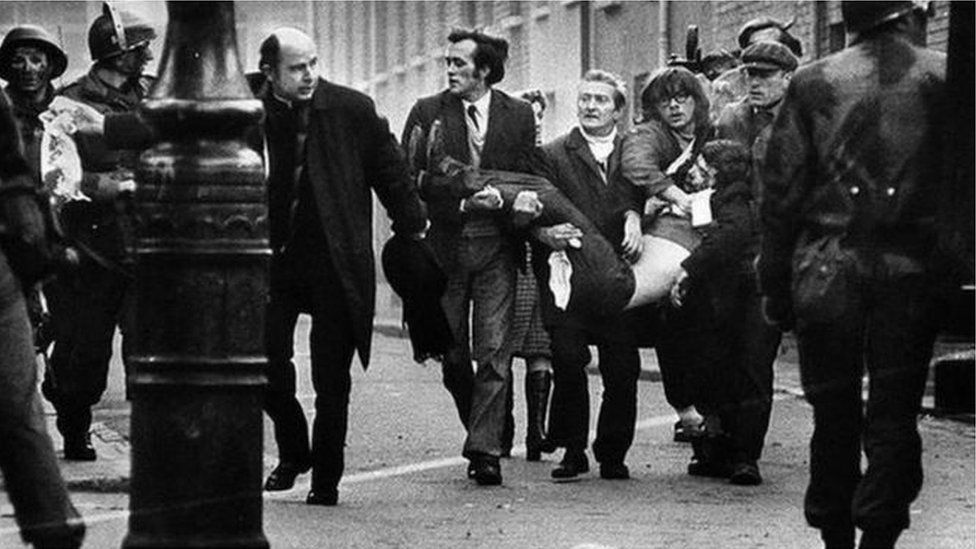
Thirteen people were killed and 15 wounded on Bloody Sunday
By Julian O’Neill & David Wilson
BBC News NI
A judge has ruled that hearsay evidence used in the prosecution of Soldier F over Bloody Sunday in 1972 can be used at his trial.
Soldier F, who cannot be named for legal reasons, has been charged with two murders and five attempted murders.
Prosecutors have submitted hearsay witness statements from other soldiers, which is considered to be crucial evidence.
The decision came at a pre-trial hearing in Londonderry.
Soldier F is being prosecuted for the murders of William McKinney and James Wray in Londonderry on 30 January 1972.
James Wray and William McKinney were among 13 people shot dead at a civil rights march
He also faces five charges of attempted murder on the same date.
Thirteen people were shot dead and at least 15 others injured when members of the Army’s Parachute Regiment opened fire on civil rights demonstrators in the Bogside, a predominantly Catholic part of Derry.
That day became known as Bloody Sunday. It is widely regarded as one of the darkest days of the Northern Ireland Troubles.
Who is Soldier F?
- A former British soldier who served with the Army’s Parachute Regiment in Northern Ireland during the Troubles
- Due to an interim court order granting his anonymity, Soldier F cannot be named
- Soldier F is being prosecuted for the murders of William McKinney and James Wray in Londonderry on 30 January 1972 during Bloody Sunday
- He also faces five charges of attempted murder – Patrick O’Donnell, Joseph Friel, Joe Mahon, Michael Quinn and a persons unknown – on the same date
The district judge’s ruling on Friday centred on an attempt by prosecutors to use evidence statements given to the 1972 Widgery Report – the first inquiry into the events of Bloody Sunday – by other soldiers present on the day.
The district judge said he was satisfied the statements could be dealt with in a “fair, just and reliable fashion” by the trial judge.
He ruled that the evidence of a sixth witness was not to be admitted.








